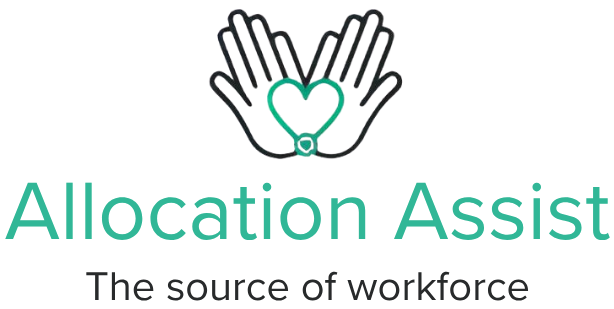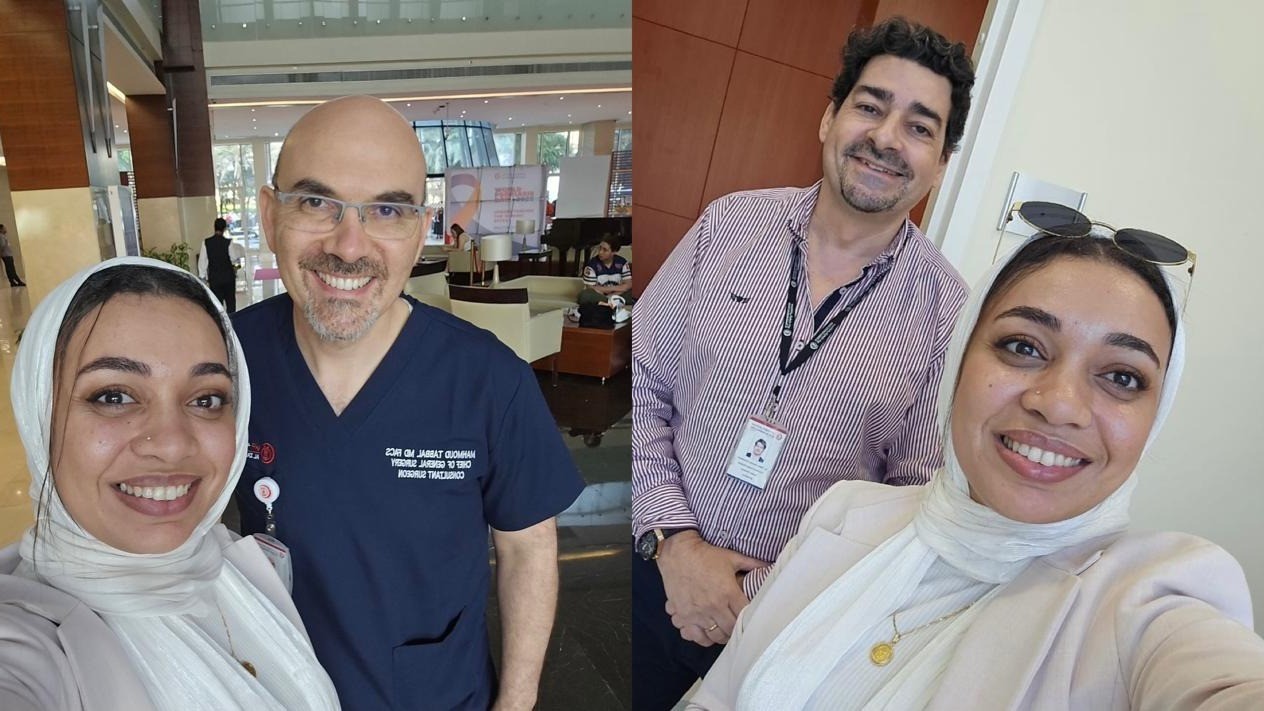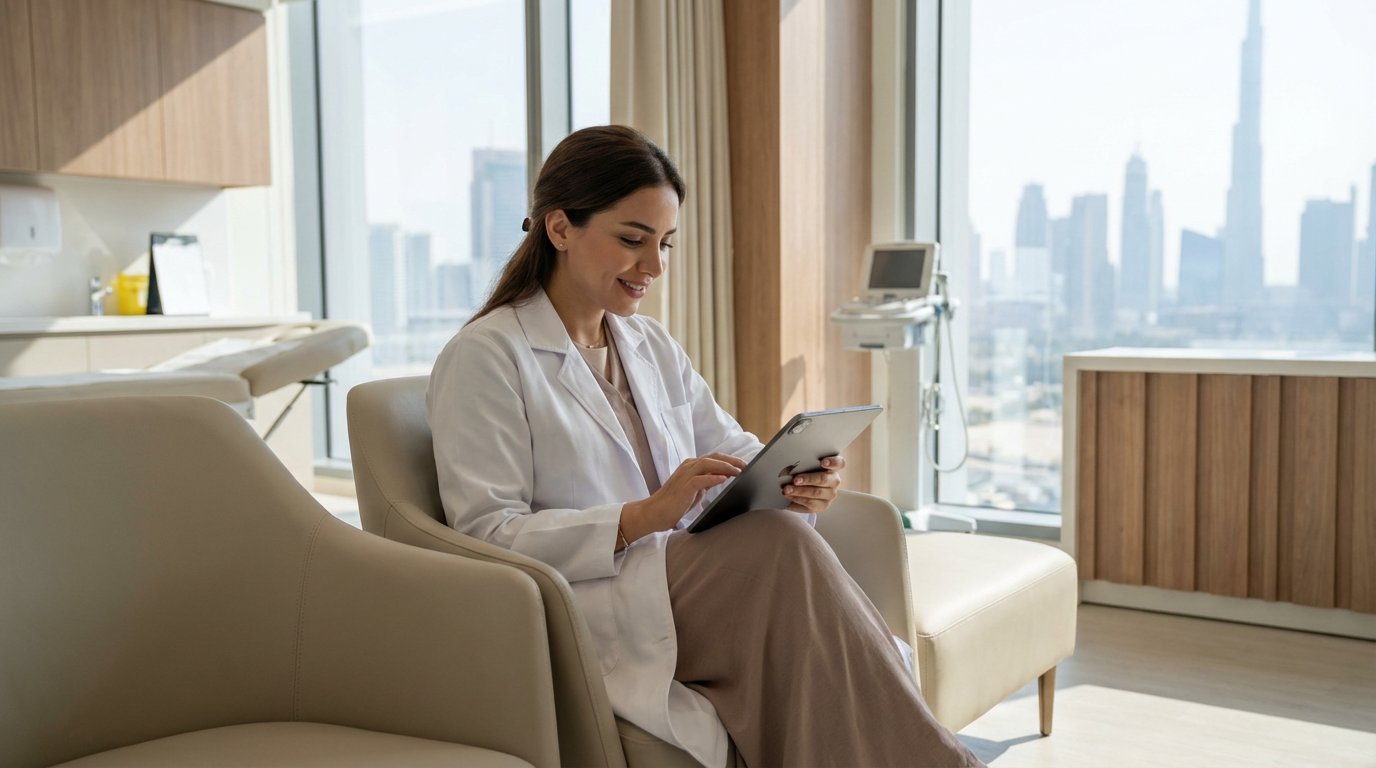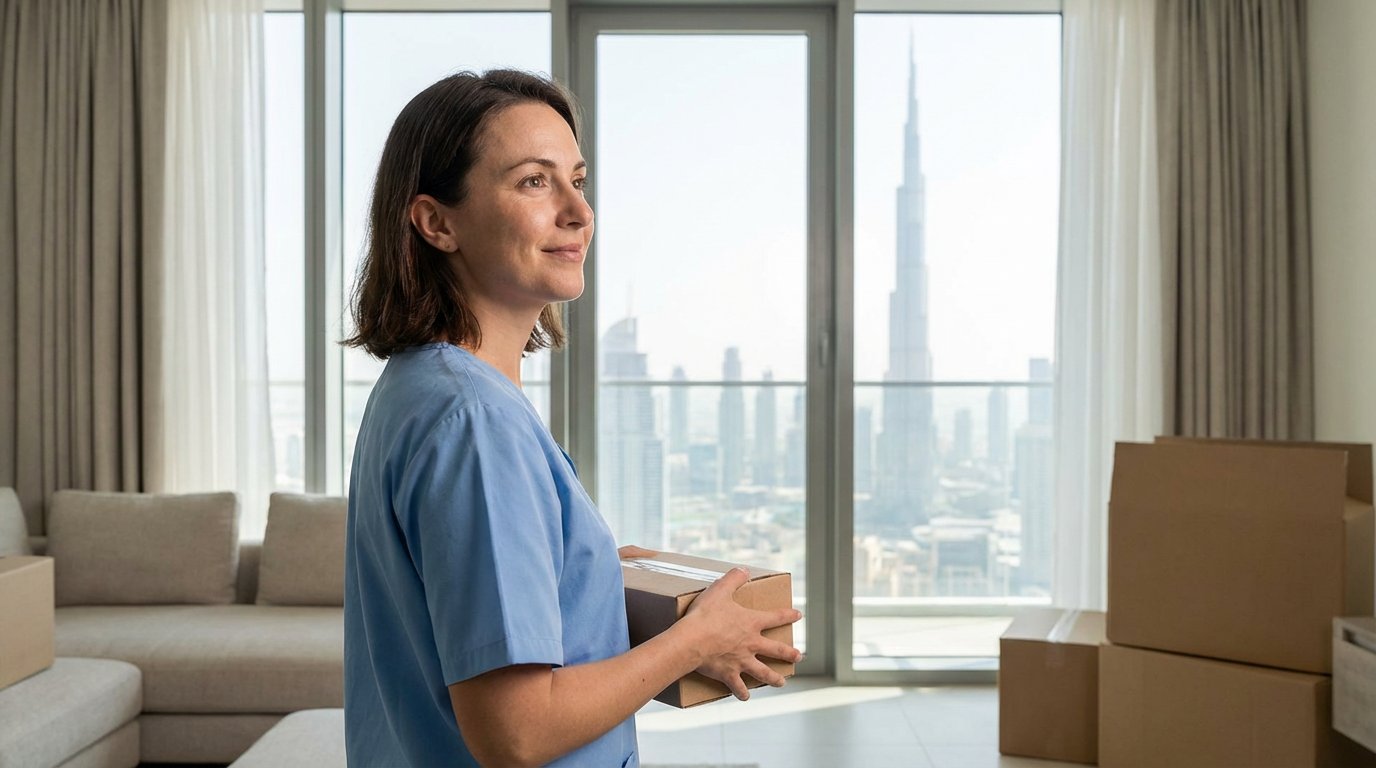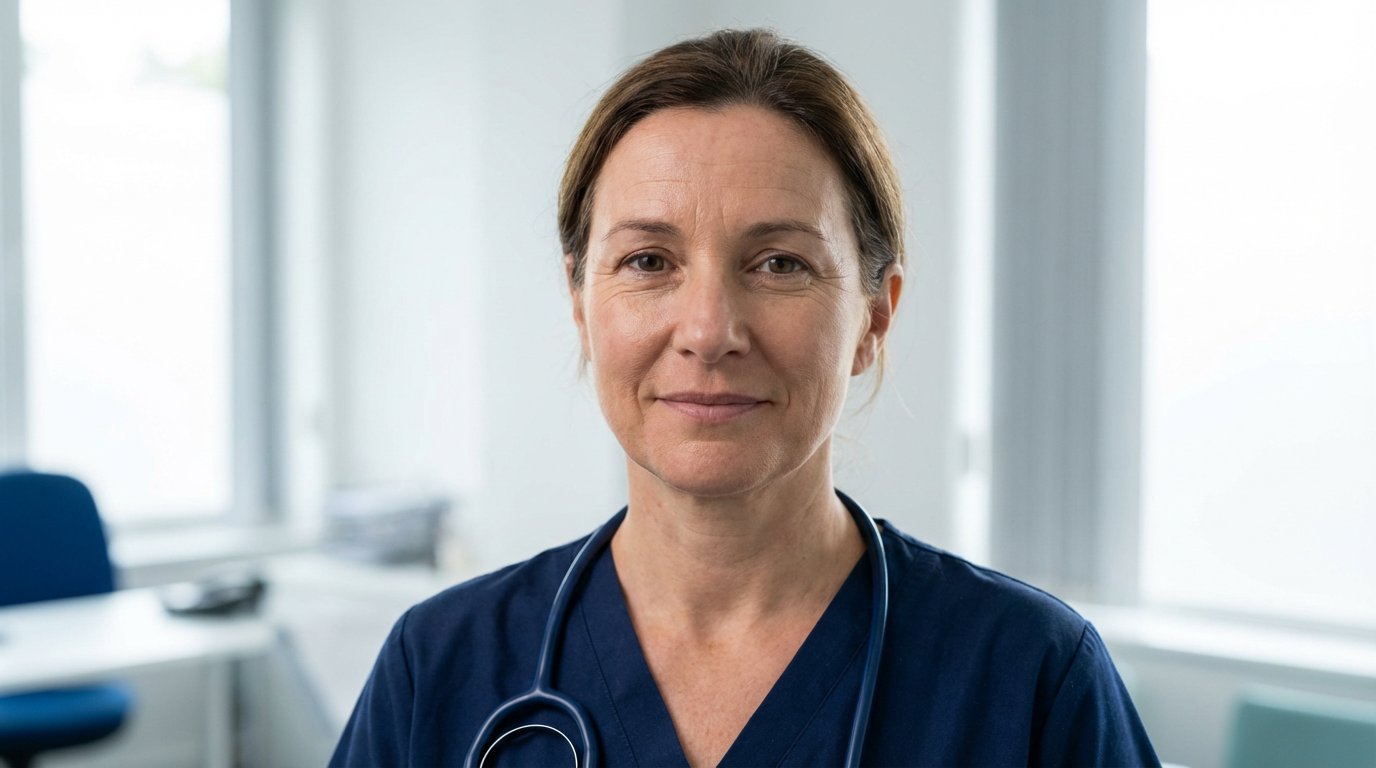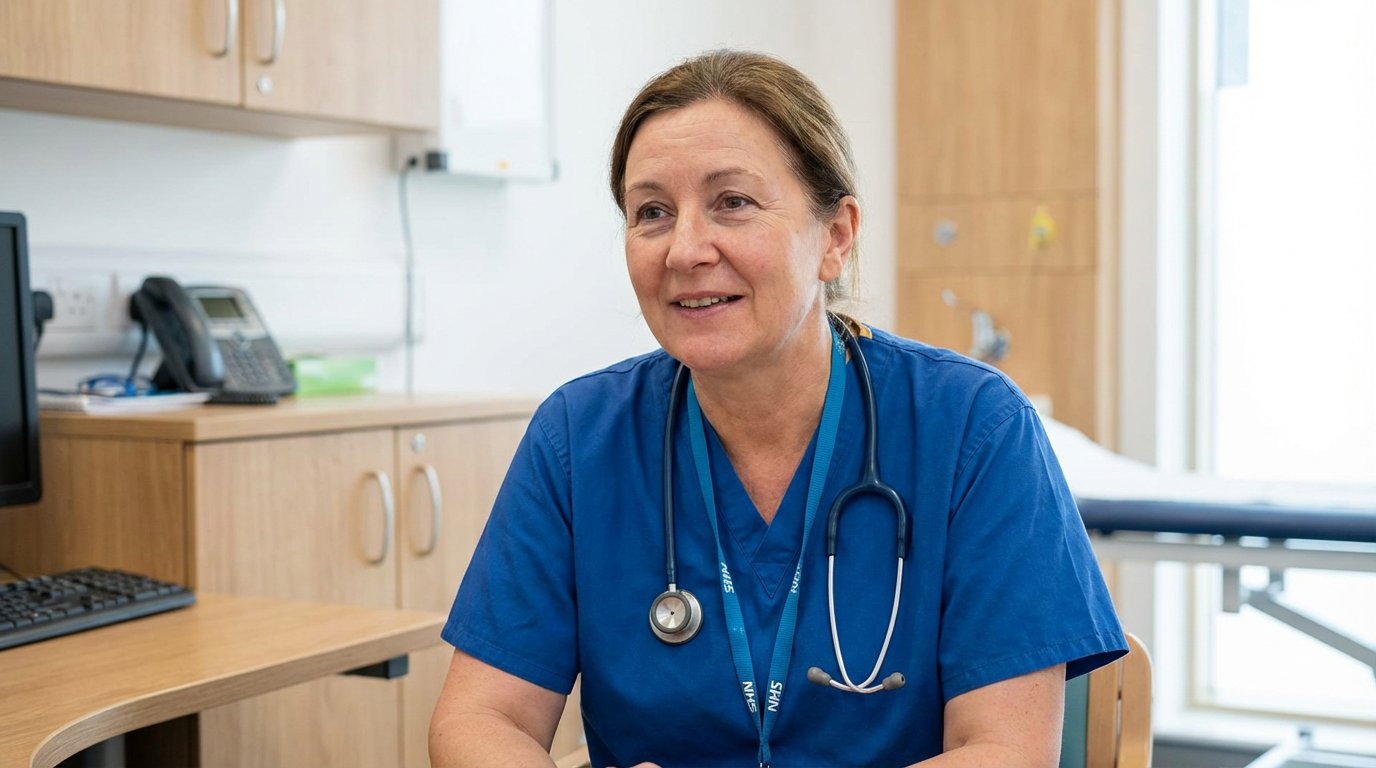Dubai Healthcare City’s evolution from 2002 to 2025 transformed it into the world’s largest healthcare free zone through strategic infrastructure development and global partnerships. You’ll find that DHCC expanded from 4.1 million square feet to encompass 481 facilities, including 195 clinical services. It’s achieved this through a five-tiered design, international medical alliances, and AI-driven innovation. The integration of research, education, and sustainable practices reveals how DHCC’s all-encompassing vision materialized into tangible success.
The Genesis of a Healthcare Powerhouse (2002)
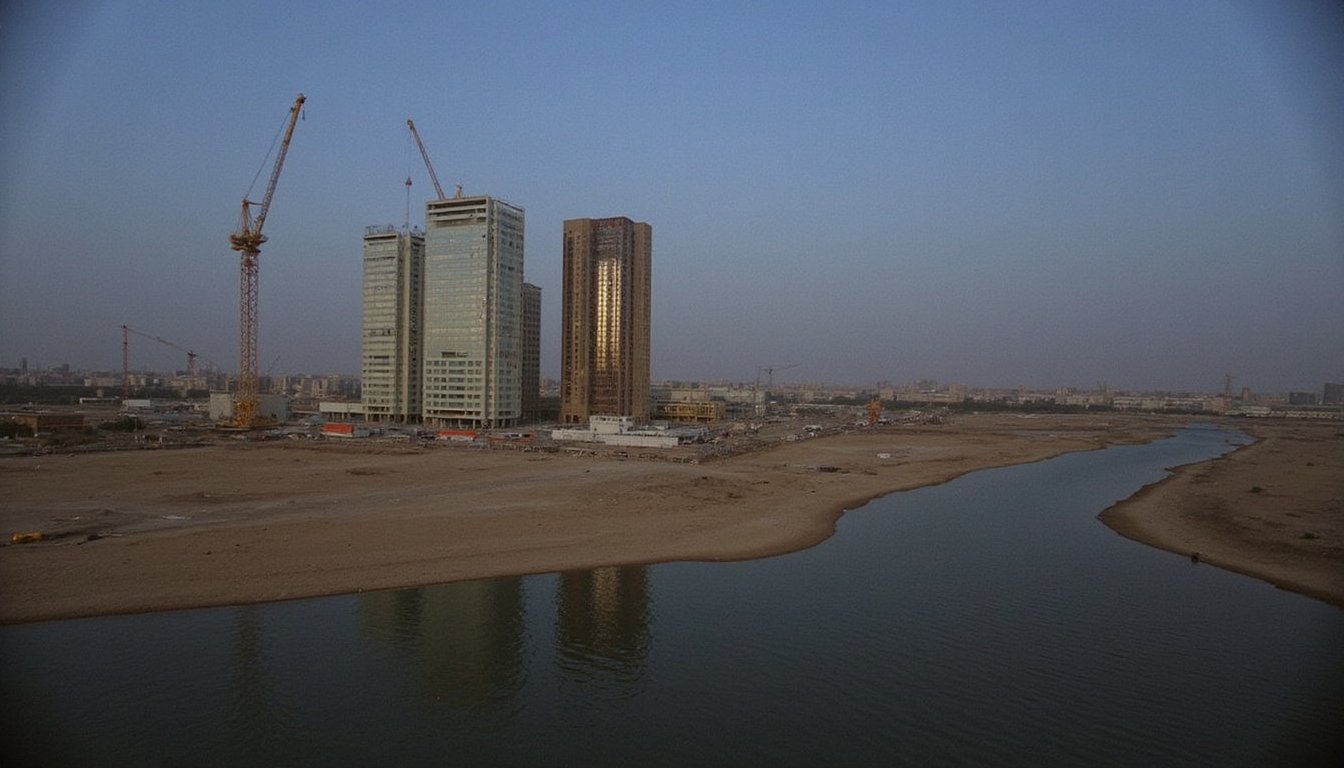
Three pivotal factors marked Dubai Healthcare City‘s establishment in 2002: Sheikh Mohammed’s visionary mandate, a patient-centered approach, and ambitious regional aspirations. This strategic foundation sparked a healthcare evolution that would transform Dubai’s medical landscape. National Engineering Bureau served as the lead consultant to help realize this transformative vision.
You’ll find that DHCC’s integration into TECOM Group under Dubai Holding proved instrumental in leveraging specialized free zones for maximum economic impact. The project’s all-encompassing mission combined healthcare delivery, education, and research within a unified regulatory framework. Through the Dubai Healthcare City Authority’s management, you can see how the initiative established streamlined licensing processes and autonomous regulations that attracted global medical institutions. The development rapidly expanded to encompass 4.1 million square feet of healthcare facilities in Dubai. With a network of over 4,000 professionals, DHCC has built a robust medical workforce to deliver world-class care. This extensive approach positioned Dubai as an emerging healthcare hub, serving not just the GCC region but extending its reach to the broader Arab world and international markets.
Strategic Infrastructure and Initial Investment
Building upon DHCC’s foundational vision, the strategic infrastructure plan incorporated an innovative five-tiered design that revolutionized healthcare facility layout in the Middle East. The infrastructure investment prioritized a 670,000 sq m central foundation for education, complemented by a 330,000 sq m crescent dedicated to R&D and tech parks. The development’s primary highways connect all major medical facilities seamlessly. Operating as a medical free zone, DHCC has grown to host over 120 medical institutions since its establishment.
The complex features pedestrian-only zones to promote a car-free environment and enhance visitor experience. Strategic planning emphasized sustainable development through eco-friendly construction materials and smart infrastructure deployment. You’ll find the design’s efficiency in its multi-modal transportation network, connecting directly to Dubai Metro’s Green Line and featuring underground parking integrated with urban landscaping. The layout showcases 14 medical towers and 24 hotels in symmetric arrangement, while suspended pathways with Islamic geometric patterns enhance connectivity. This thorough approach guarantees DHCC’s infrastructure can support future expansion while maintaining operational resilience through redundant utility systems.
Building Global Medical Excellence Through Partnerships
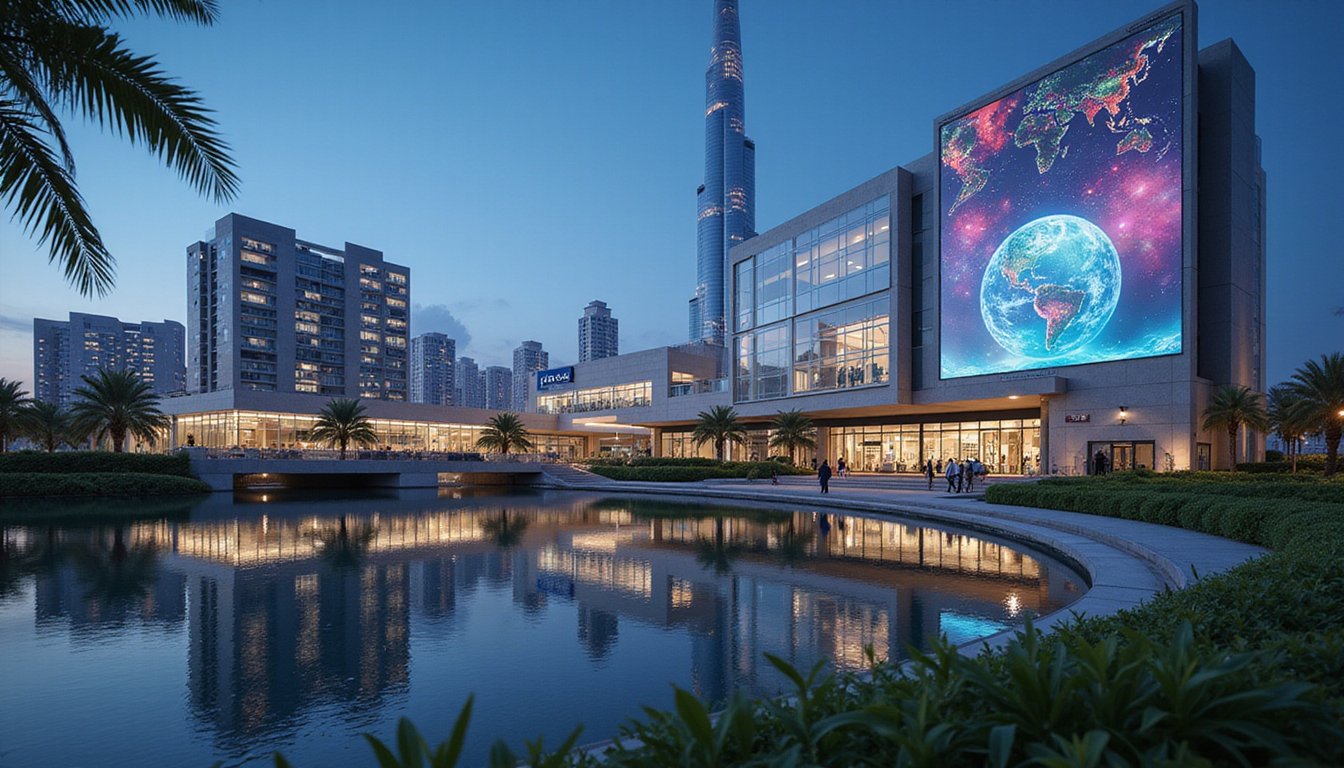
Dubai Healthcare City’s strategic partnerships with institutions like Moorfields Eye Hospital Dubai and the Royal College of Surgeons in Ireland have established robust international medical alliances, driving a 15% annual growth in patient care. You’ll find these collaborations extend into research and education through initiatives like the AI Healthcare Innovation Lab with ACORN Research and partnerships with Al Jalila Foundation, positioning DHCC as a global hub for medical advancement. Through cross-border innovation partnerships, including the AI Quantum Intelligence Institute and Airmed International, you’re witnessing DHCC’s transformation into a thorough healthcare ecosystem that attracts over 120 medical institutions from around the world. The upcoming mixed-use development in Dubai Healthcare City Phase 2, spanning 172,000 sqm, will further enhance the area’s comprehensive medical and lifestyle offerings. The facility’s dedication to patient-centric care has been fundamental to its growth since its establishment in 2002, ensuring exceptional experiences through integrated healthcare services.
Strategic International Medical Alliances
Through strategic global partnerships, DHCC has established itself as a pivotal hub for international medical excellence, with transformative alliances spanning air medical transport, technological innovation, and specialized healthcare delivery.
You’ll find DHCC’s global alliances exemplified by their 2025 partnership with AirMed International, which strengthens Dubai’s position in medical tourism through 24/7 worldwide operations and CAMTS/EURAMI accredited services. With twenty years experience serving patients in the UAE, AirMed International brings established expertise to enhance DHCC’s medical transport capabilities. These medical collaborations extend to cutting-edge technological partnerships, including their work with AI Quantum Intelligence Institute to optimize healthcare revenue cycles and claims processing. The groundbreaking initiative represents the first systematic partnership between a healthcare free zone authority and an AI company. Established in 2002 by HH Sheikh Mohammed Bin Rashid Al Maktoum, DHCC has grown to include over 400 partners contributing to its thriving healthcare ecosystem.
DHCC’s infrastructure supports these partnerships through TECOM Investments’ free zone flexibility, offering 4.1 million square feet of healthcare facilities and tailored business solutions that attract international providers while maintaining operational efficiency through strategic collaborations with Balsam Healthcare and Dataflow Group.
Research and Education Partnerships
Research and education excellence stands at the core of DHCC’s global partnerships, with the 2025 launch of Acorn Research’s AI Healthcare Innovation Lab marking a significant advancement in medical innovation. Through strategic research collaborations and educational initiatives, DHCC has created a robust ecosystem that drives healthcare transformation.
Key developments in DHCC’s research and education framework include:
- Partnership with Al Jalila Foundation to advance medical education and interdisciplinary innovation through specialized academic institutions
- Integration of AI-driven platforms for clinical decision support and genome analysis, enhancing precision medicine capabilities
- Development of research facilities that combine lifestyle amenities with academic spaces, fostering collaboration between visiting physicians and independent practitioners
These partnerships have positioned Dubai as a global leader in healthcare innovation while supporting evidence-based care practices and population health management. The lab’s commitment to value-based healthcare has established new benchmarks for patient-centered care delivery across the region. Since its establishment in 2002 by Sheikh Mohammed, DHCC has supported over 400 partners in advancing medical education and research initiatives. The recent collaboration between DHCA and AIQII demonstrates the city’s dedication to implementing generative AI technology for optimizing healthcare operations.
Cross-Border Healthcare Innovation
While global healthcare systems often struggle with cross-border integration, DHCC has established itself as a pioneering hub for international medical excellence by leveraging strategic partnerships and technological innovation. Through key partnerships like Cleveland Clinic affiliates, DHCC demonstrates its commitment to world-class healthcare delivery.
You’ll find DHCC’s cross-border collaboration exemplified through its partnership with AI Quantum Intelligence Institute, implementing healthcare technology solutions that streamline medical claims processing across multiple jurisdictions. The free zone’s reach extends to a regional population of over 2 billion, spanning the Gulf, Africa, and Asia. By hosting more than 2,000 licensed professionals and offering 10-year residency visas, DHCC has created a robust ecosystem for international medical expertise. Their three-step registration via Masaar e-services platform facilitates seamless business setup, while AI-driven operational models enhance partnerships with global healthcare providers, establishing DHCC as a catalyst for regional healthcare transformation. The establishment of a tax-free environment has attracted numerous international healthcare businesses seeking profitable expansion opportunities in the region.
Phase 1: Transforming Oud Metha’s Healthcare Landscape
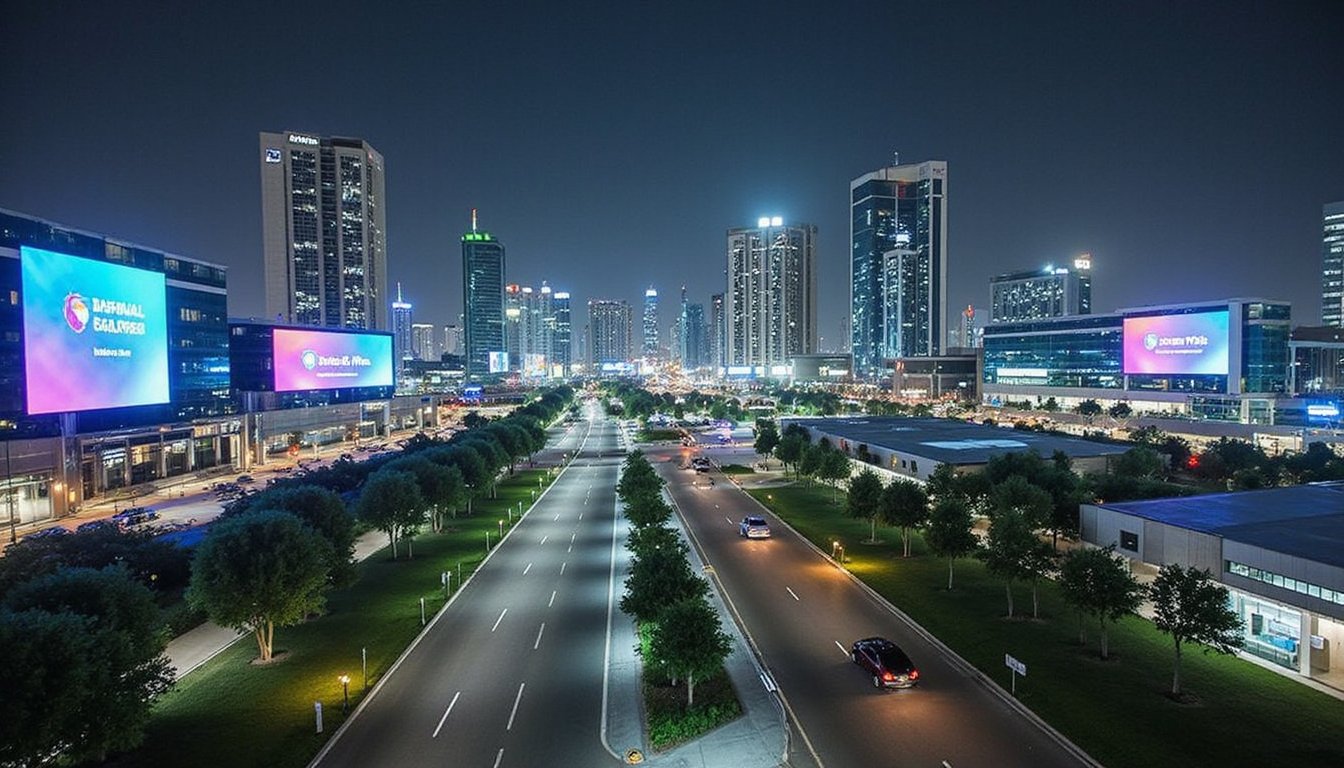
Since its establishment by Sheikh Mohammed in 2002, Dubai Healthcare City‘s Phase 1 has revolutionized healthcare delivery in Oud Metha by creating an all-inclusive medical ecosystem spanning 4.1 million square feet.
Dubai Healthcare City stands as a visionary medical ecosystem, transforming Oud Metha into a world-class healthcare destination since 2002.
The transformation of this healthcare landscape has delivered remarkable results through focused development in three key areas:
- Healthcare Infrastructure: Phase 1 houses 120 medical institutions, including specialized clinics, diagnostic centers, and advanced treatment facilities
- Medical Specialties: The zone excels in diverse fields like cardiology and plastic surgery, supported by state-of-the-art diagnostic capabilities
- Global Integration: The development has positioned Dubai as a medical tourism destination while fostering partnerships with leading international healthcare organizations
This strategic development has created a thorough healthcare hub that combines clinical excellence with academic advancement and operational efficiency.
Regulatory Framework and Quality Assurance Standards
Dubai Healthcare City’s regulatory framework integrates international best practices through DHCR’s extensive quality monitoring systems, which mandate JCI accreditation for hospitals and enforce ISO certifications across all facilities. You’ll find the licensing process has evolved considerably since 2008, with the Commercial Services Licensing Regulation establishing clear pathways for over 4,000 healthcare professionals and 90+ medical facilities to operate under strict compliance standards. The DHCA’s two-division structure enables both efficient business operations through the DHCC Free Zone and rigorous regulatory oversight via DHCR, ensuring adherence to UAE federal healthcare laws while maintaining global quality benchmarks.
International Accreditation Compliance Standards
As healthcare facilities within Dubai Healthcare City aim for operational excellence, they must adhere to an extensive framework of international accreditation standards overseen by the Dubai Healthcare City Authority – Regulation (DHCR). Meeting these global standards presents specific accreditation challenges that require strict compliance across all operational aspects.
Key compliance requirements include:
- Integration with ISQua-accredited frameworks to maintain internationally recognized quality benchmarks
- Implementation of specialized infection control protocols and waste management systems aligned with Dubai Municipality guidelines
- Regular monitoring and maintenance of medical equipment to meet rigorous safety standards
DHCC’s commitment to these standards has successfully attracted premier healthcare institutions like Moorfields Eye Hospital and Johnson & Johnson, validating its position as a leading healthcare destination that consistently meets international quality metrics.
Licensing Process Evolution
Building upon its rigorous accreditation standards, DHCC’s licensing framework has undergone significant evolution since its 2002 establishment. You’ll find the transformation reflects both operational maturity and digital transformation initiatives, with streamlined processes addressing early licensing challenges through innovative solutions.
The framework now encompasses distinct pathways for healthcare professionals and commercial entities, with mandatory capital requirements of AED 50,000 for businesses and AED 300,000 for medical referral institutions. You’re obligated to complete multi-stage validations through an efficient online portal, typically taking 3-10 working days depending on complexity. The system integrates seamlessly with Dubai Economic Department and Municipality verification processes, while maintaining strict credential authentication through Primary Source Verification for healthcare practitioners. Annual renewals and compliance audits guarantee ongoing quality assurance.
Quality Monitoring Systems
Since its inception in 2002, DHCC’s quality monitoring systems have evolved into a sophisticated regulatory framework that combines advanced technological infrastructure with stringent quality assurance standards.
You’ll find three key developments that have shaped DHCC’s quality monitoring approach:
- Implementation of evidence-based performance metrics, including clinical measures and patient safety protocols, aligned with international benchmarks like Joint Commission standards
- Integration of AI-powered analytics for disease outbreak forecasting through platforms like NABIDH Health Exchange, enhancing preventive care capabilities
- Advancement in EMRAM stages, with nine hospitals achieving stage 5 certification, demonstrating robust electronic medical record adoption and interoperability
This transformation reflects DHCC’s shift from professional self-monitoring to a government-driven quality agenda, supported by mandatory IT reporting and centralized compliance monitoring systems.
Medical Tourism: Creating a Regional Healthcare Hub
Through strategic investments and targeted development, Dubai Healthcare City (DHCC) has transformed into a premier medical tourism destination, serving over 500,000 patients annually from Europe, Africa, GCC, CIS, and South Asia.
You’ll find DHCC’s success reflected in its impressive growth metrics: medical tourism revenue reached AED 1.03 billion in 2023, with indirect contributions of AED 2.3 billion boosting related sectors. Private healthcare investment hit $8 billion by 2010-11, demonstrating strong market confidence. The city’s ranking as 16th globally in the Medical Tourism Index (2016) showcases its competitive position among established destinations like Germany and India.
DHCC’s specialized offerings in dermatology (31%), dentistry (24%), and gynecology (18%) align perfectly with global demand, while language-specific services and regionalized treatment packages enhance its international appeal.
Phase 2: Wellness Innovation and Expansion
Modern wellness concepts at Dubai Healthcare City’s Phase 2 development integrate holistic health services across its expanded 19 million square feet of facilities. You’ll find innovative wellness centers and rehabilitation hubs seamlessly connected with clinical care services, demonstrating DHCC’s commitment to preventive healthcare and lifestyle management. The sustainable healthcare design incorporates AI-driven initiatives and green practices, while achieving a 16% CAGR from 2020-2024 through strategic investments in wellness-focused infrastructure.
Modern Wellness Concepts Emerge
As Dubai Healthcare City entered its second phase of development, the emergence of extensive wellness concepts marked a transformative shift in the region’s healthcare landscape. You’ll find modern wellness initiatives spanning 22 million square feet, strategically designed to integrate holistic health services with traditional medical facilities.
The expansion introduces three key developments:
- WorldCare Wellness Village featuring zero-gravity therapy pools, specialized rehabilitation spaces, and all-encompassing spa facilities
- Enhanced infrastructure connecting 168 clinical facilities and 10 leading hospitals within a unified ecosystem
- Diversified services including sports medicine, elderly care, and counseling programs
This transformation addresses Dubai’s growing healthcare demands while positioning the city as a global wellness hub. The initiative’s scope extends beyond traditional medical services, attracting 95 international companies and establishing regional headquarters for healthcare innovators.
Sustainable Healthcare Design Integration
The sustainable design integration within Dubai Healthcare City’s Phase 2 marks a significant evolution in the region’s wellness infrastructure. You’ll find evidence of this transformation in the 36 planned buildings, where sustainable architecture seamlessly blends healthcare facilities with residential spaces and lifestyle amenities.
The development’s wellness integration is particularly visible in projects like the Asan-UAE Gastroenterology Hospital, which incorporates landscaped gardens and serene environments to support patient recovery. You’re seeing this approach extend across the entire Phase 2 development, where energy-efficient practices and modern infrastructure support the creation of pedestrian-friendly environments. The strategic location near Dubai Creek enhances the therapeutic value, while mixed-use developments like Binghatti Creek and Creek Views 2 demonstrate how healthcare facilities can coexist with community-focused urban planning.
Research and Education: Fostering Medical Knowledge
Dubai Healthcare City’s extensive approach to medical education and research stems from its robust regulatory framework and strategic partnerships. You’ll find that DHCC’s dual licensing system and free zone status create an environment where medical research and education innovation can flourish through academic-industry collaborations.
The city’s commitment to advancing medical knowledge is evident through:
Dubai Healthcare City stands as a beacon of medical advancement, fostering knowledge growth through innovative research and educational partnerships.
- Integration of over 2,000 licensed professionals who contribute to teaching and research initiatives
- Strategic partnerships with TECOM Group and Arab Health that facilitate knowledge exchange and showcase cutting-edge research
- Development of specialized research centers that enable hands-on learning through clinical trials
With a projected CAGR of 16% (2020-2024), DHCC’s infrastructure continues to expand, supporting both Phase 1’s focus on scientific research and Phase 2’s emphasis on wellness education, positioning Dubai as a regional hub for medical excellence.
Sustainable Healthcare Development (2002-2025)
Since its establishment in 2002, DHCC’s sustainable healthcare development has evolved through strategic phases that integrate environmental responsibility with medical excellence. You’ll find this commitment reflected in their two major development phases: Oud Metha’s focus on medical facilities and Jaddaf’s emphasis on preventive healthcare and wellness services.
DHCC’s sustainable practices extend beyond healthcare innovation, encompassing waste management collaboration with Dubai’s 2041 strategy and energy-efficient facility designs. You can see their dedication to environmental stewardship through initiatives like Dubai Can’s plastic reduction campaign and the implementation of recycled water systems. Their infrastructure has grown to 481 facilities, including 195 clinical services, while maintaining strict environmental standards. This growth aligns with Dubai’s vision of becoming a global health and wellness destination by 2025.
The Path to Becoming World’s Largest Healthcare Free Zone
Building on its sustainable foundation, DHCC has methodically transformed into a healthcare powerhouse through strategic free zone policies and targeted expansion. The zone’s evolution reflects emerging healthcare trends through its thorough development approach and future predictions for medical tourism growth.
Key drivers of DHCC’s free zone success include:
- Regulatory framework offering 100% foreign ownership and tax benefits, attracting over 120 medical institutions
- Strategic focus on high-demand specialties like IVF, aesthetics, and dental care, serving diverse international markets
- Infrastructure development spanning 23.1M sq ft, combining clinical facilities with wellness-centered urban planning
You’ll find DHCC’s approach particularly compelling as it balances commercial interests with healthcare excellence, evidenced by its 20% medical tourism growth and expanding partnerships with global institutions. The zone’s dual regulatory structure guarantees quality while fostering business growth, positioning it as a dominant healthcare hub.
Frequently Asked Questions
What Challenges Did Local Healthcare Providers Face When DHCC First Launched?
When DHCC launched, you’d have faced significant market competition as local providers struggled to match international standards. You needed to navigate complex regulatory hurdles while establishing your presence alongside well-established healthcare facilities. You had to invest heavily in infrastructure and training to meet DHCC’s strict requirements, while simultaneously working to retain skilled staff and build patient trust in a newly developing healthcare hub.
How Does DHCC Handle Emergency Medical Situations During Major City Events?
DHCC’s emergency preparedness integrates multiple response layers for major city events. You’ll find they deploy additional mobile intensive care units and fast-responder motorcycles to navigate traffic-heavy areas. Their event coordination includes pre-planning with hospitals, while AirMed International provides air ambulance support. You can access emergency services through the unified 999 number, and their Medical Operations Command Centres coordinate real-time responses with police helicopters and paramedic teams.
What Percentage of Dhcc’s Medical Staff Comes From International Backgrounds?
While DHCC doesn’t publicly release exact nationality breakdowns of its medical staff, you’ll find that its international workforce closely mirrors Dubai’s overall expatriate demographics of 92%. The facility’s growth from 10,000 to 11,500 staff between 2021-2024 shows strong reliance on global talent. Cultural diversity is evident with professionals primarily from India, Pakistan, Bangladesh, Philippines, and Egypt, reflecting the UAE’s broader healthcare sector composition, where expatriates form the majority of medical practitioners.
How Does Dhcc’s Pricing Structure Compare to Other Global Healthcare Hubs?
When you compare DHCC’s pricing to other global healthcare hubs, you’ll find it’s remarkably competitive. The facility’s procedures typically cost 30-70% less than U.S. rates, while maintaining high standards. For example, you’ll pay AED 16,350 for coronary bypass compared to AED 123,000 in the USA. DHCC’s pricing strategies balance affordability with quality, positioning it advantageously against other medical tourism destinations like Turkey and Israel, particularly in specialized procedures.
What Role Does Artificial Intelligence Play in Dhcc’s Medical Procedures?
You’ll find AI deeply integrated into DHCC’s medical procedures through advanced AI diagnostics and predictive analytics. The facilities leverage AI-powered systems for automated claims processing, robotic-assisted surgeries, and real-time patient monitoring. You can access AI-enhanced diagnostic tools that analyze medical imaging, while predictive analytics help your healthcare providers make data-driven decisions about your treatment. The implementation of AI chatbots also supports your 24/7 telemedicine needs.
